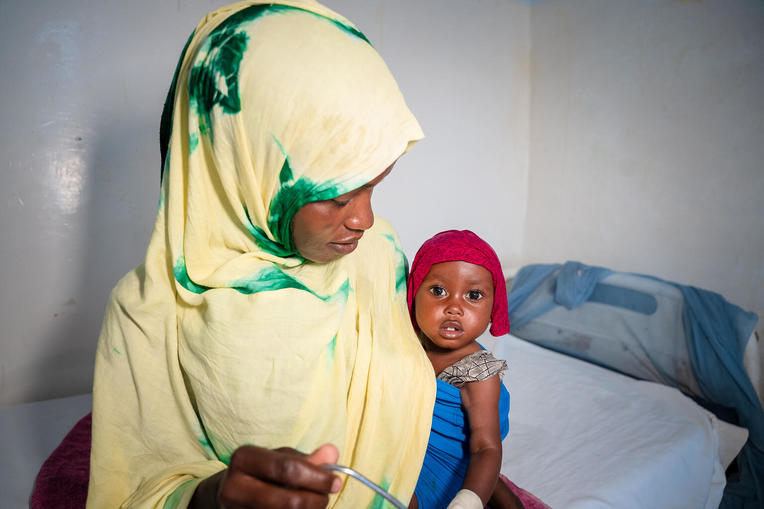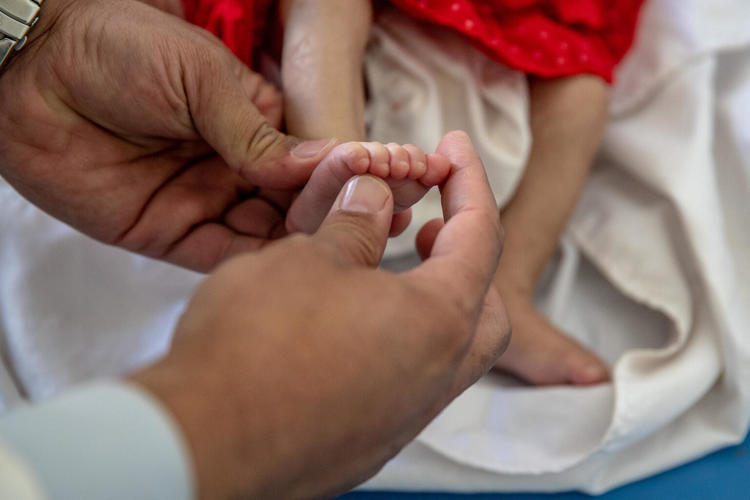Request support on coordination, information management, integration for nutrition outcomes or technical nutrition in emergencies assistance.
التماس الدعم لتنسيق التغذية وإدارة المعلومات والتغذية في حالات الطوارئ
Demander un appui pour la coordination de la nutrition, la gestion de l'information et la nutrition dans les situations d'urgence
Buscar apoyo para la coordinación de la nutrición, la gestión de la información y la nutrición en situaciones de emergencia
Solicite apoio para coordenação em nutrição, gestão de informação e nutrição em emergências
In 2022, the GNC Technical Alliance supported nutrition responses with technical in-country and remote in-depth support and advice across 15 countries this year including, Honduras, Myanmar, Burkina Faso, Somalia and Afghanistan. While each country, organization, community, and context is unique, we were reminded of some big-picture “best practices” this year that are important to consider when providing technical support to nutrition responses. We hope you will consider how you can implement these practices in your nutrition work, whether as a frontline worker, program manager, or providing technical support.
Enable national partners at all times
The Technical Support Team’s work in Myanmar earlier this year affirmed how absolutely central national actors are in the delivery of technical support. National actors enable the activities to be led in the local language by individuals with in-depth and lived experience in the context.
Alexa Humphreys our Assessment Advisor collaborated remotely with a Burmese national in-country who led the support. Practically, this meant the Alliance helped to develop technically sound training materials on how to implement MUAC screening, while the training itself was carried out by the team in-country in the national language of Burmese. Additionally, all training materials that would be disseminated by the in-country partners to health workers at the community level were also translated into Burmese.
This structure meant that the strengths of each stakeholder were utilized and employed. Alexa provided remote technical support and in-country actors adapted the training materials to the local context and disseminated them to the community level.
This also meant that ownership over the implementation and outputs of the response was held at the national level while localizing training materials led to increased understanding and retention of the concepts discussed during the training. This ultimately helped sustain the support, as national actors were better equipped to repeat these screening exercises in the near future.
Resource national partners as much as possible
In Somalia, our CMAM advisor Martha Nakankande helped to strengthen the capacity of local organisations in stabilization centre management. Several partners were trained and showed that they can manage the stabilization process well and independently when given the right and necessary resources – including equipment and materials, finances, and human resources. Local and national organizations play a vital role in the delivery of CMAM programming to the most vulnerable communities – they often have access to locations that international organizations cannot access. Therefore, it’s important that local organizations are supported to thrive and deliver high-quality programming.
Therefore, it’s crucial that the Nutrition Cluster leads, INGOs donors, and all other parties concerned – including the Ministry of Health – provide similar or better support to local organizations in order for them to continue implementing activities and sustain interventions.

Build strong relationships with government offices
When providing technical IYCF-E support in Burkina Faso, our CMAM advisor Martha Nakankande was reminded of just how crucial it is to coordinate, collaborate, and engage with the relevant Ministry of Health departments. Together with the Nutrition Cluster lead agency (UNICEF), they helped ensure that the support delivered was effective and activities were implemented with minimal challenges
In this instance, the government’s nutrition department was clearly involved from the very start of the deployment. They helped review the documents produced, liaised with local and international partners, participated fully in the training including Ministry of Health facilitators, and effectively handled the arrangements and planning for the Ministry of Health and regional health staff that attended the training.
Deliver training and support in the local language
The support provided to Somalia in stabilization center management capacity strengthening activities also further affirmed the importance of adapting all activities to the local language as well as its feasibility.
In Somalia, formal education in health is often delivered in English. However, when training partners at the national and community level in health – most often Somalis training Somalis – it was more advantageous to conduct this knowledge transfer in Somali, which enabled a better understanding of the training content and the context for actors at all levels.
Remain flexible and agile
The IYCF-E support the Alliance provided through our IYCF-E and Gender Advisor Brooke Bauer to the Afghanistan Nutrition Cluster this year demonstrated the importance of being flexible with deadlines when reviewing and finalizing key outputs. While a work plan was developed by the Technical Support Team in collaboration with the IYCF-E Technical Working Group, the working group was unable to meet the agreed-upon deadlines due to changes in priorities and the unpredictable nature of the Afghanistan context. While understandable, having a fixed work plan that doesn’t account for these unplanned but unavoidable circumstances, creates confusion and frustration for both parties.
Instead, adding in plenty of extra time for the review and approval stages allows space to adapt to changing circumstances while still working together towards one shared goal.

Seek advice and support when needed
Our experiences supporting and advising nutrition actors around the world this year have shown us that we need one another to execute this work well for the people it serves. No organization, government, specialist, or group holds all the knowledge and know-how to plan and implement nutrition responses alone. Our learnings this year have also reminded us that we need to adapt to the needs of nutrition actors and the local context of the communities where nutrition emergencies are occurring and take their lead when supporting them. We need to draw on the strengths of one another to deliver our best work.
That’s why the Alliance is keen to support you and your team with technical nutrition support and assistance in your country. Our Technical Support Team of nutrition advisors and experts are ready to answer your questions and support you in-country or remotely.
Get in touch with us and request support today.
